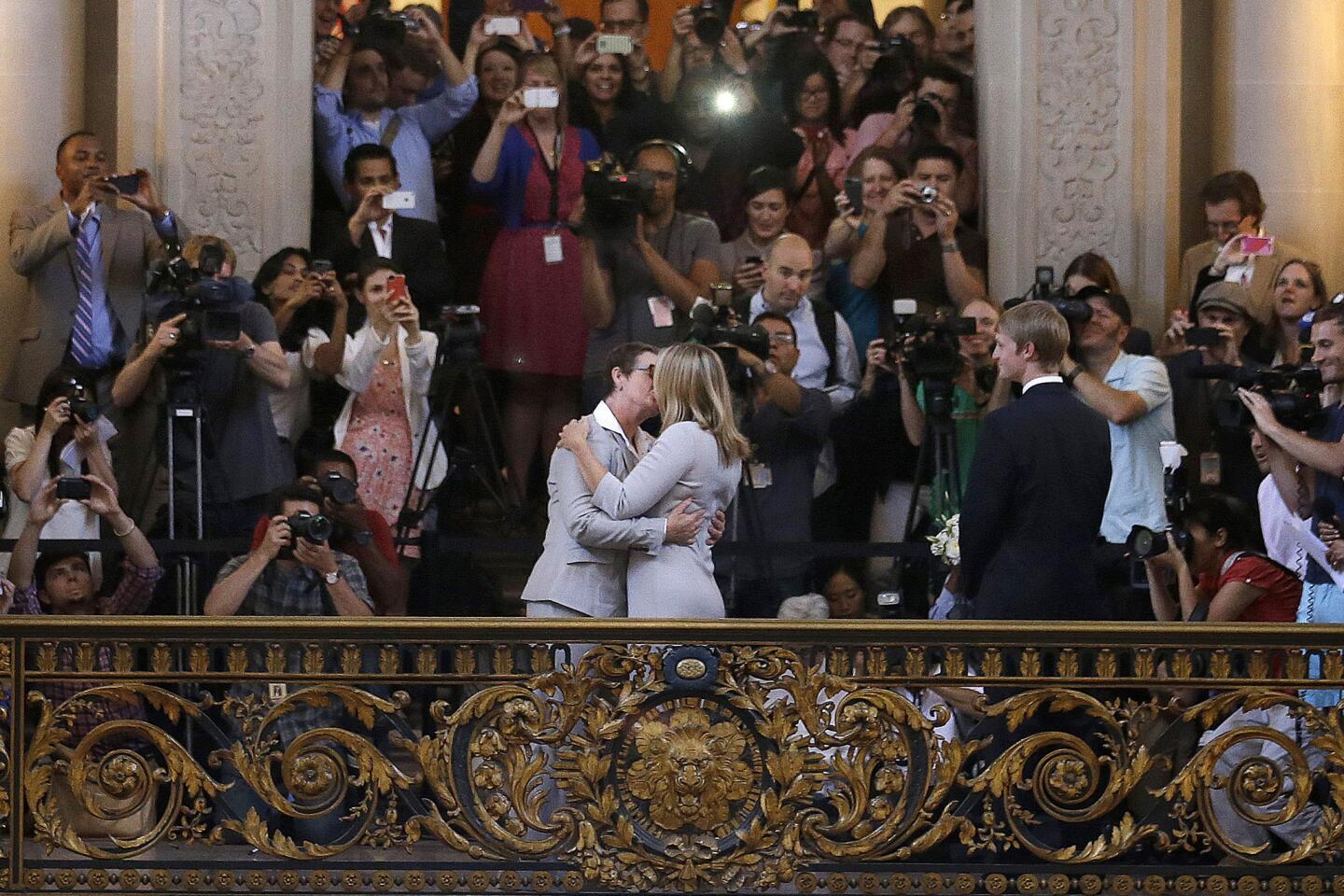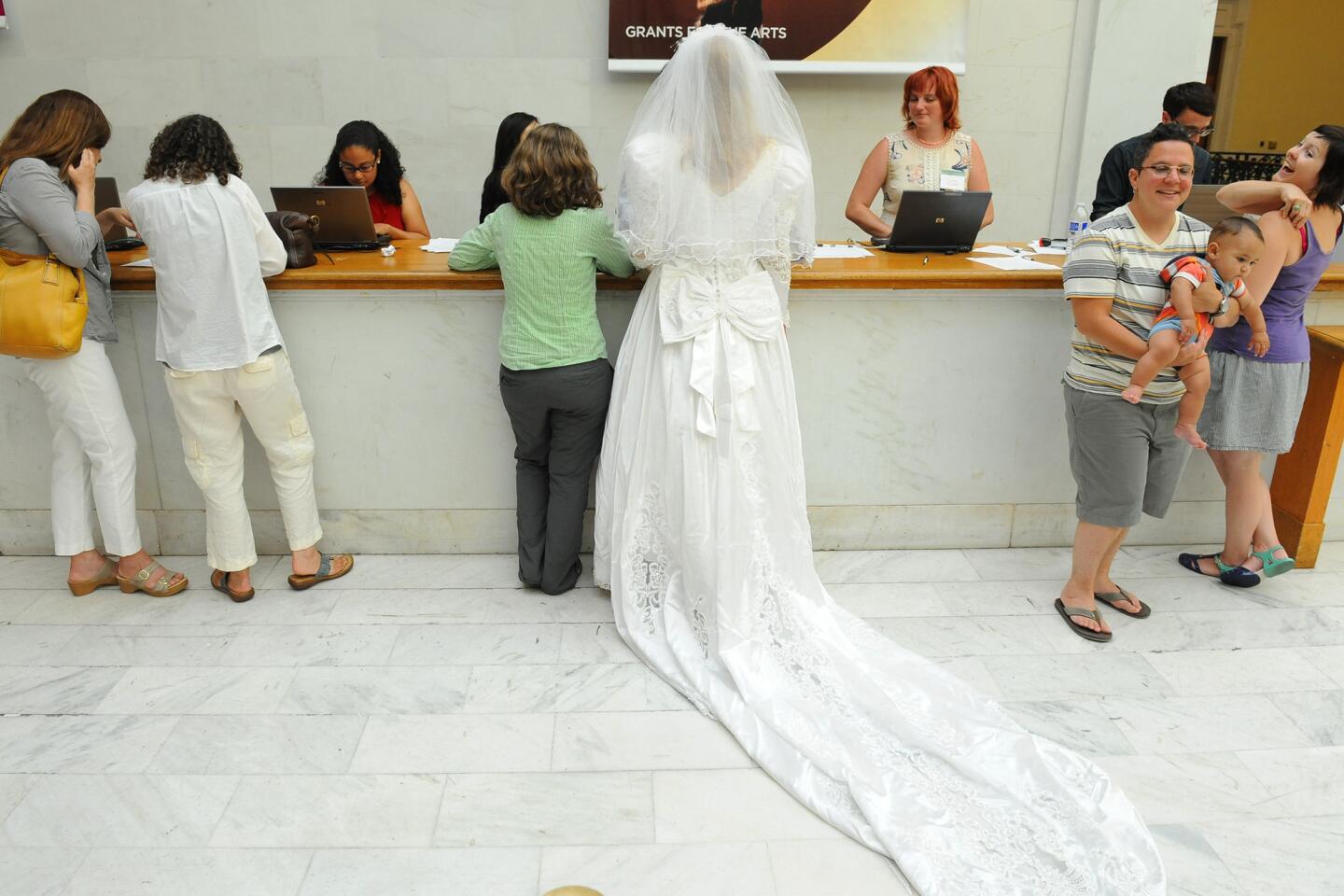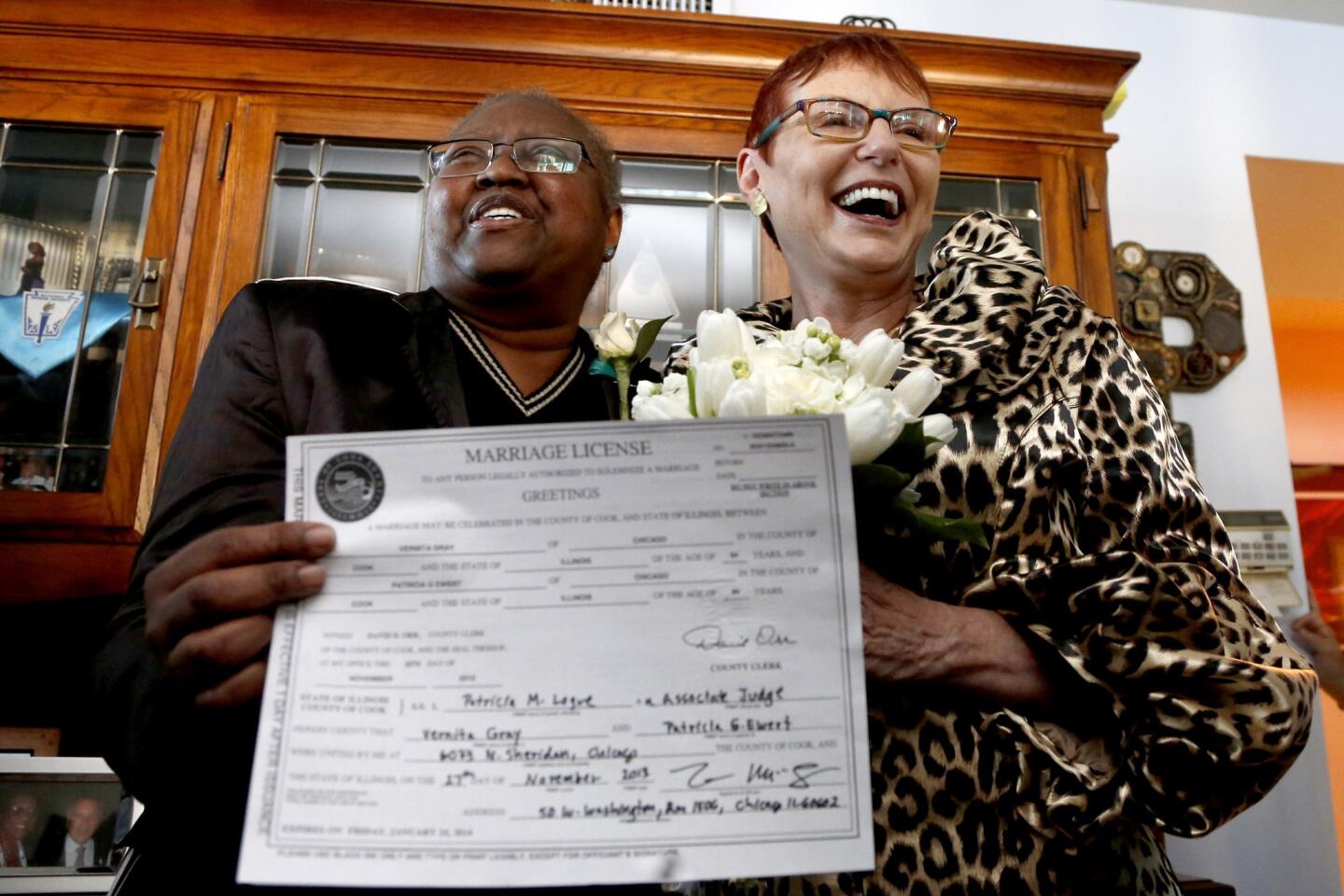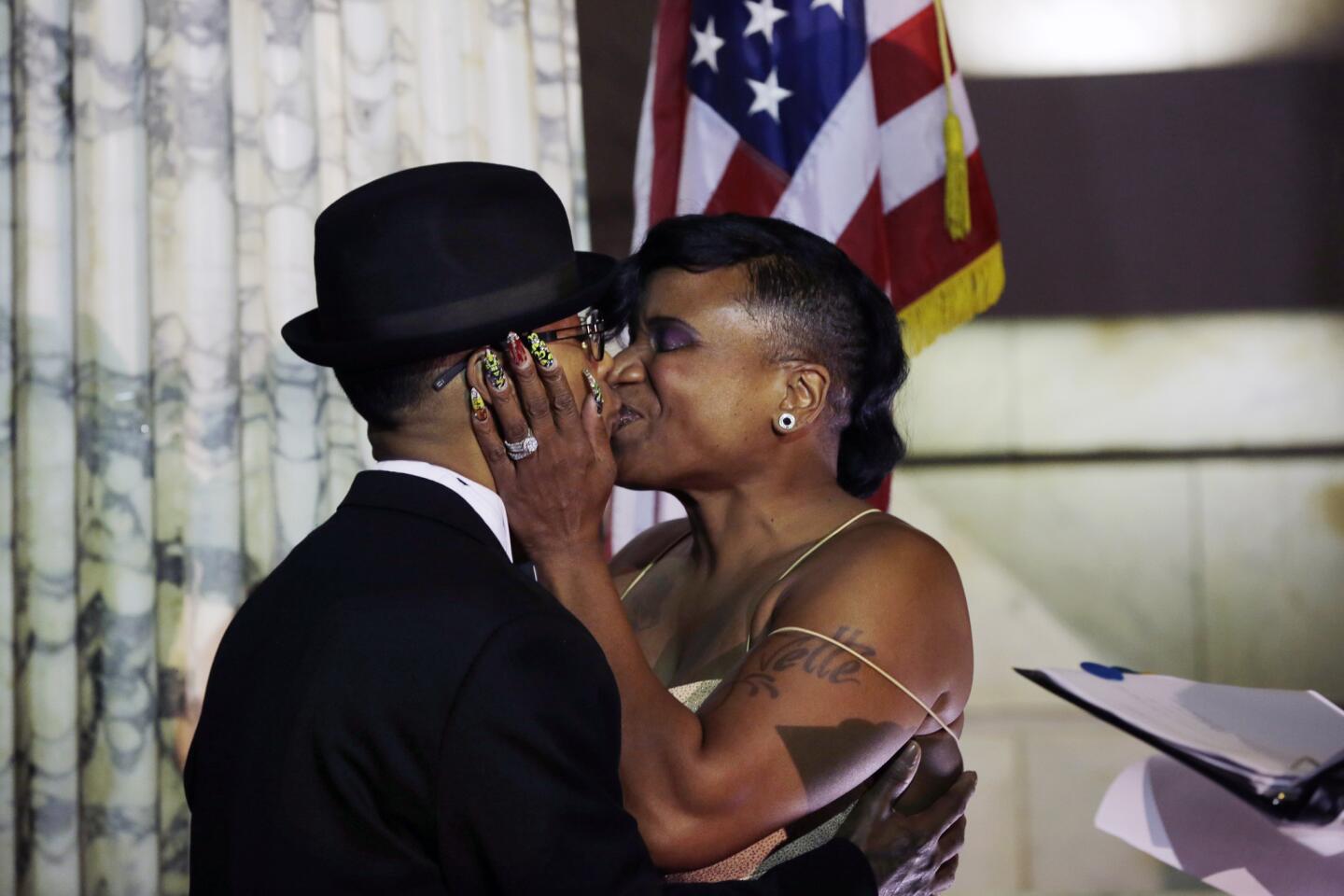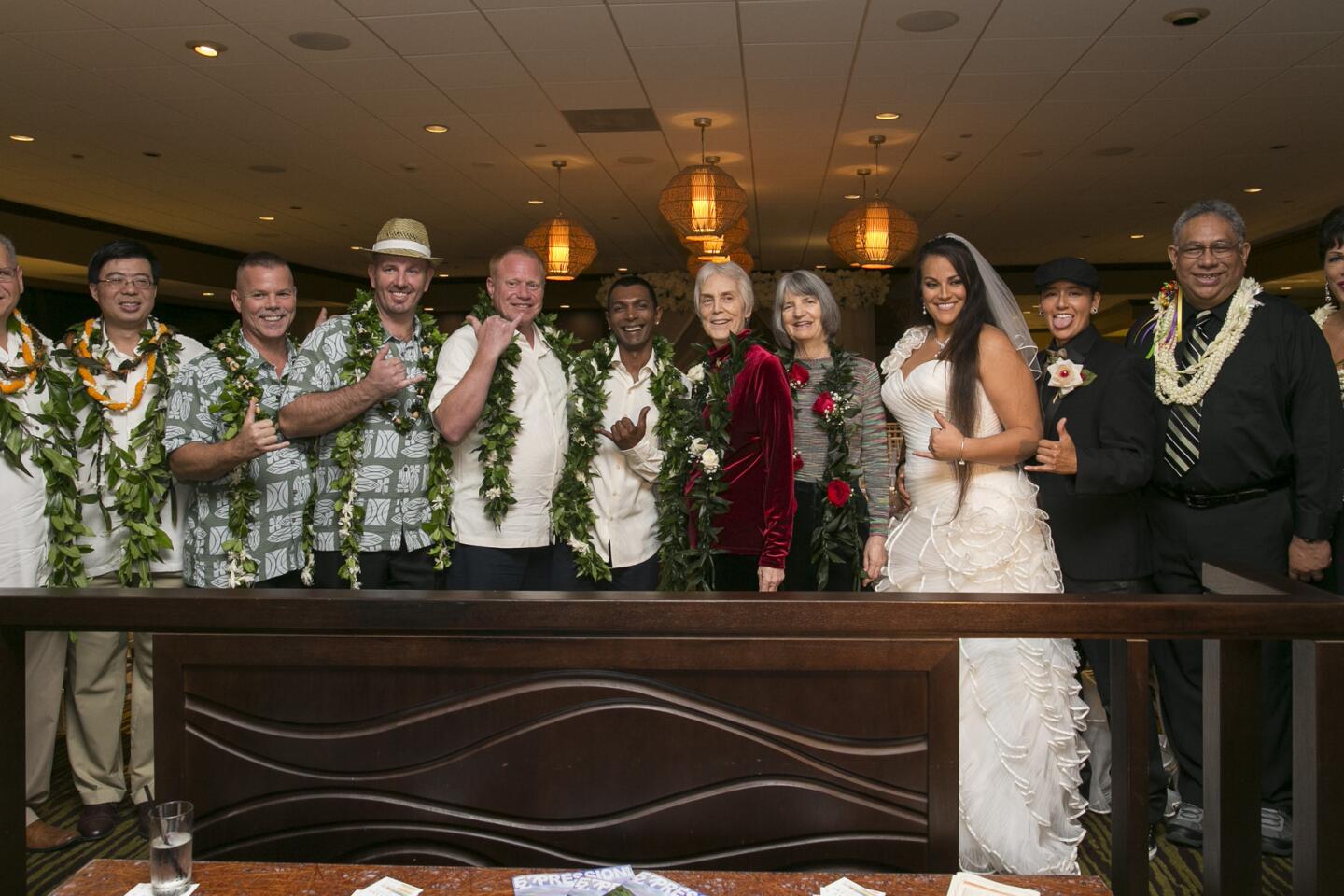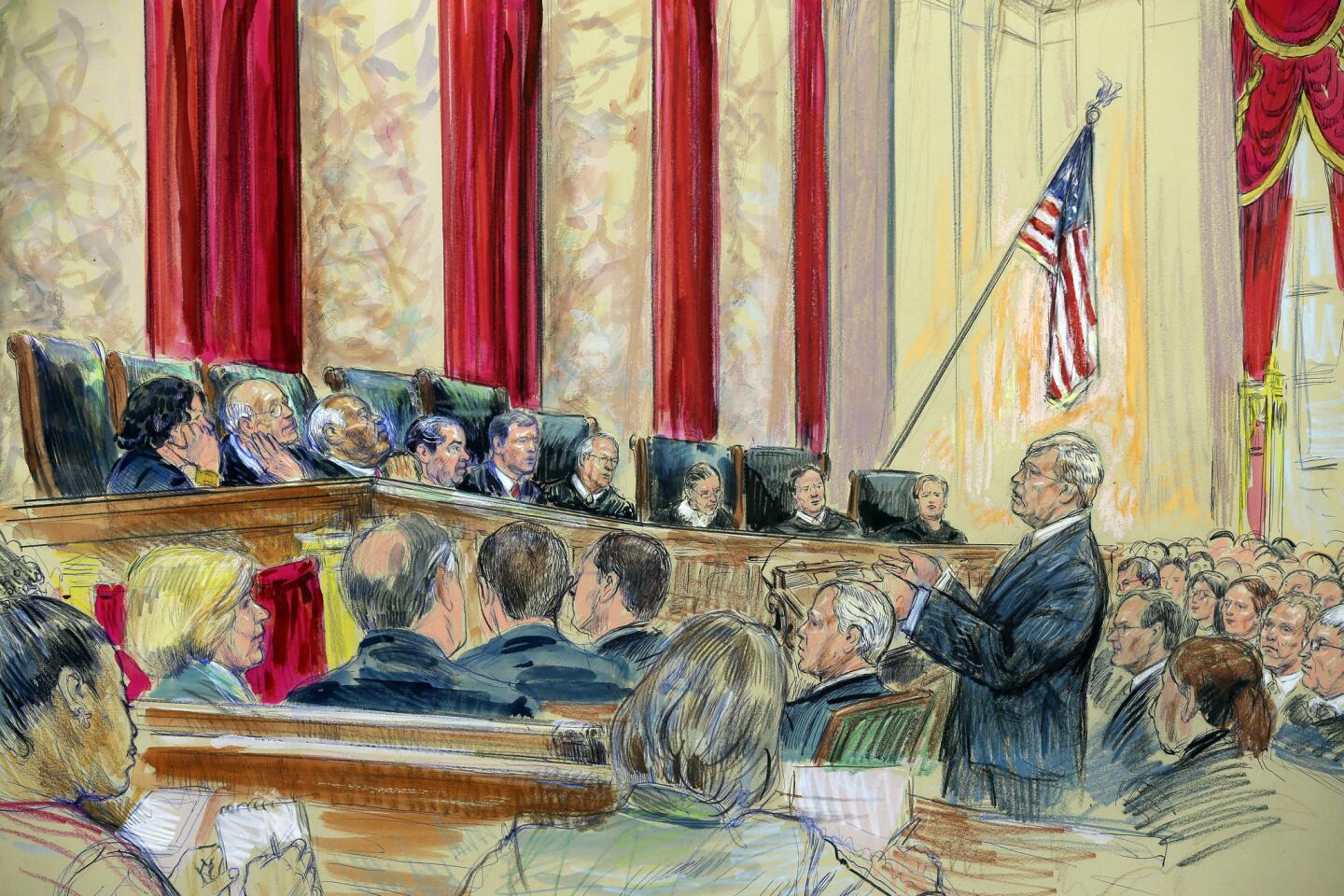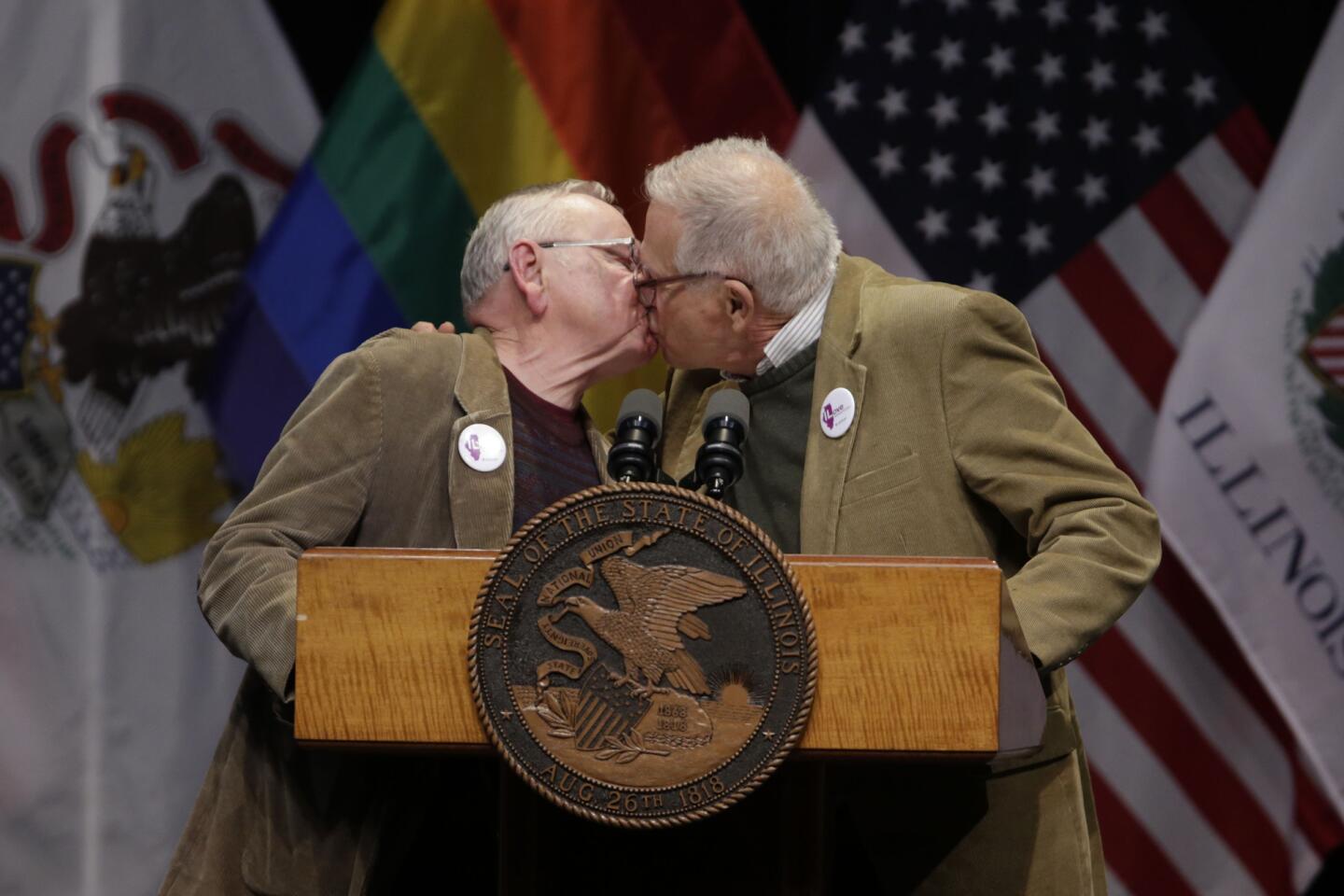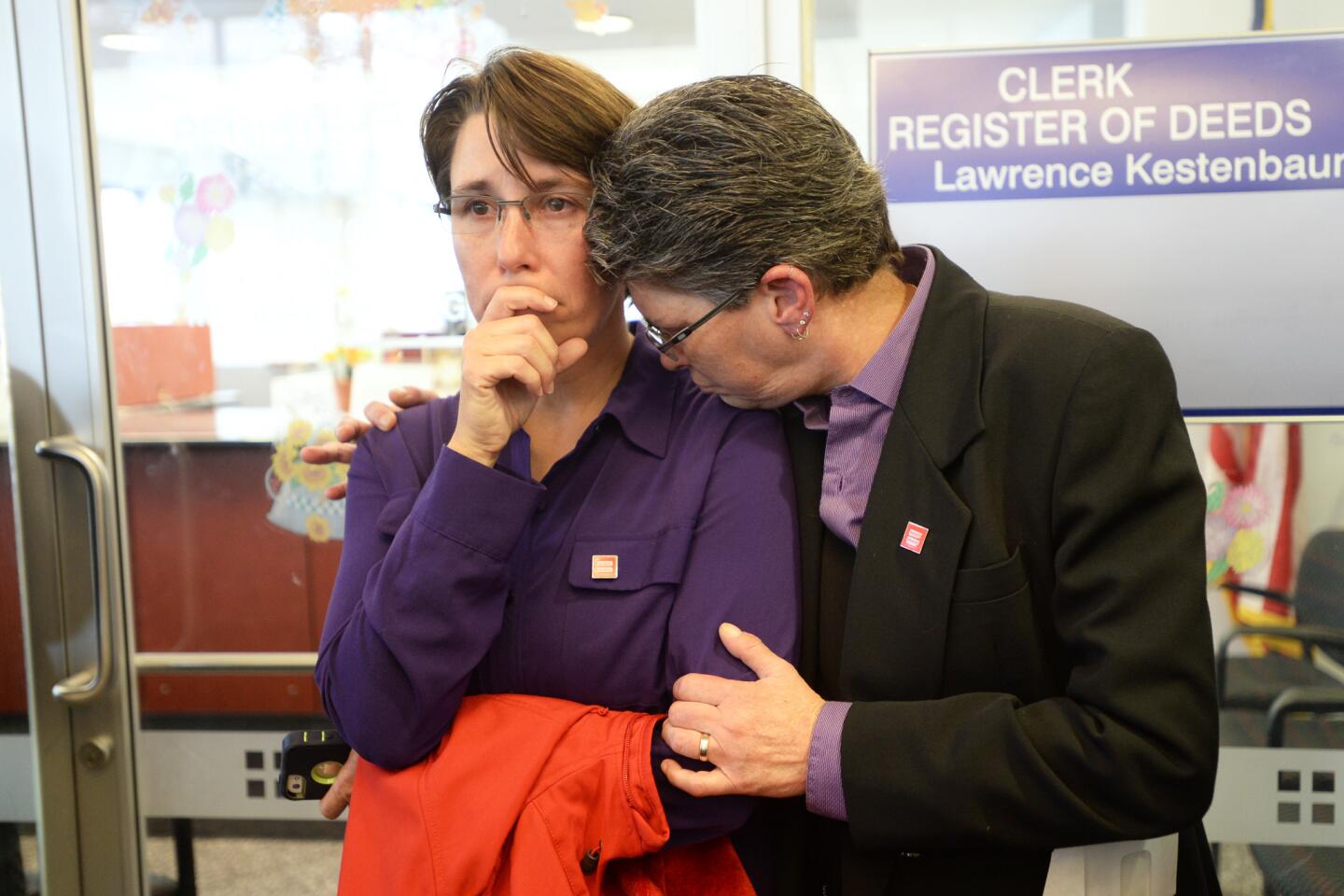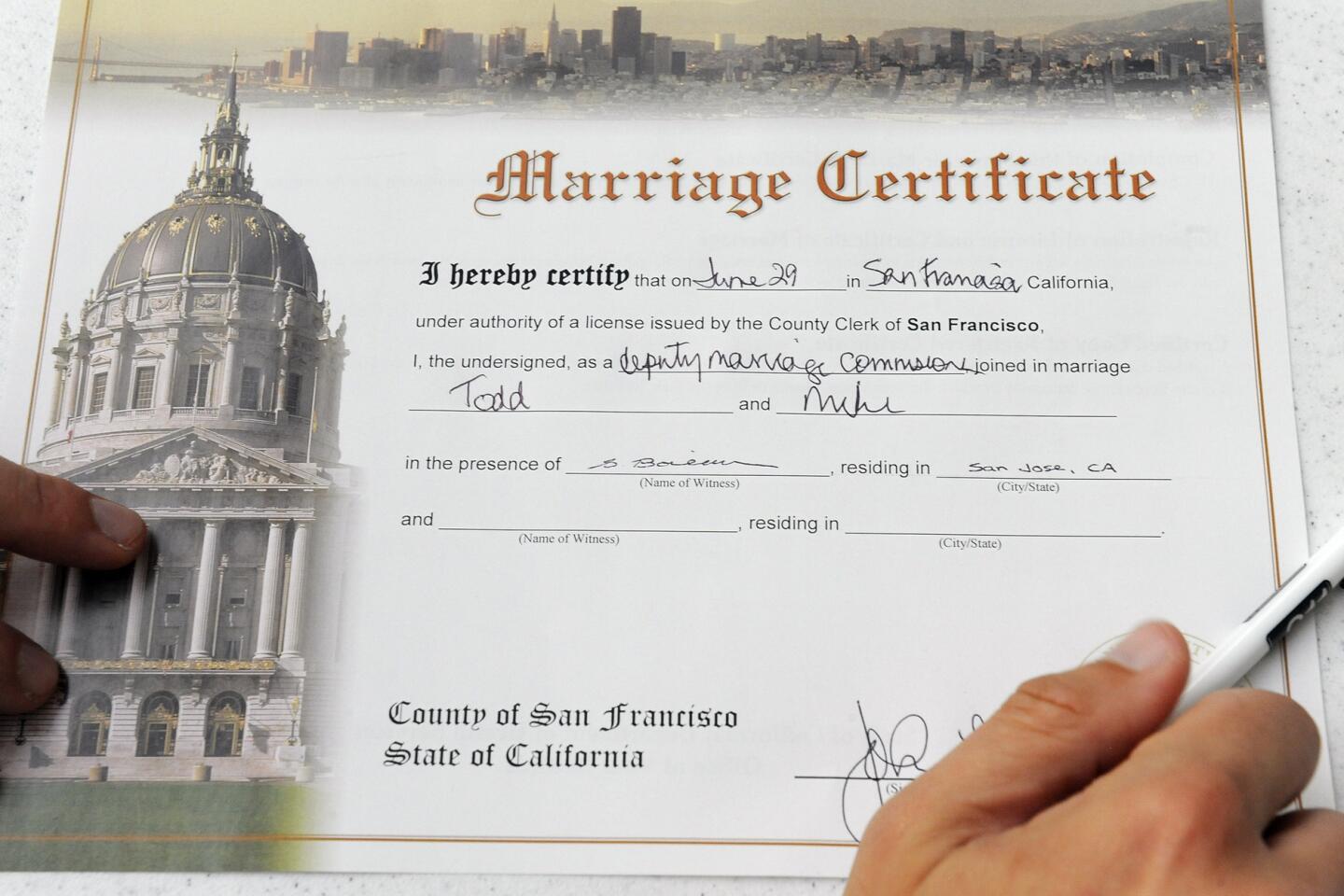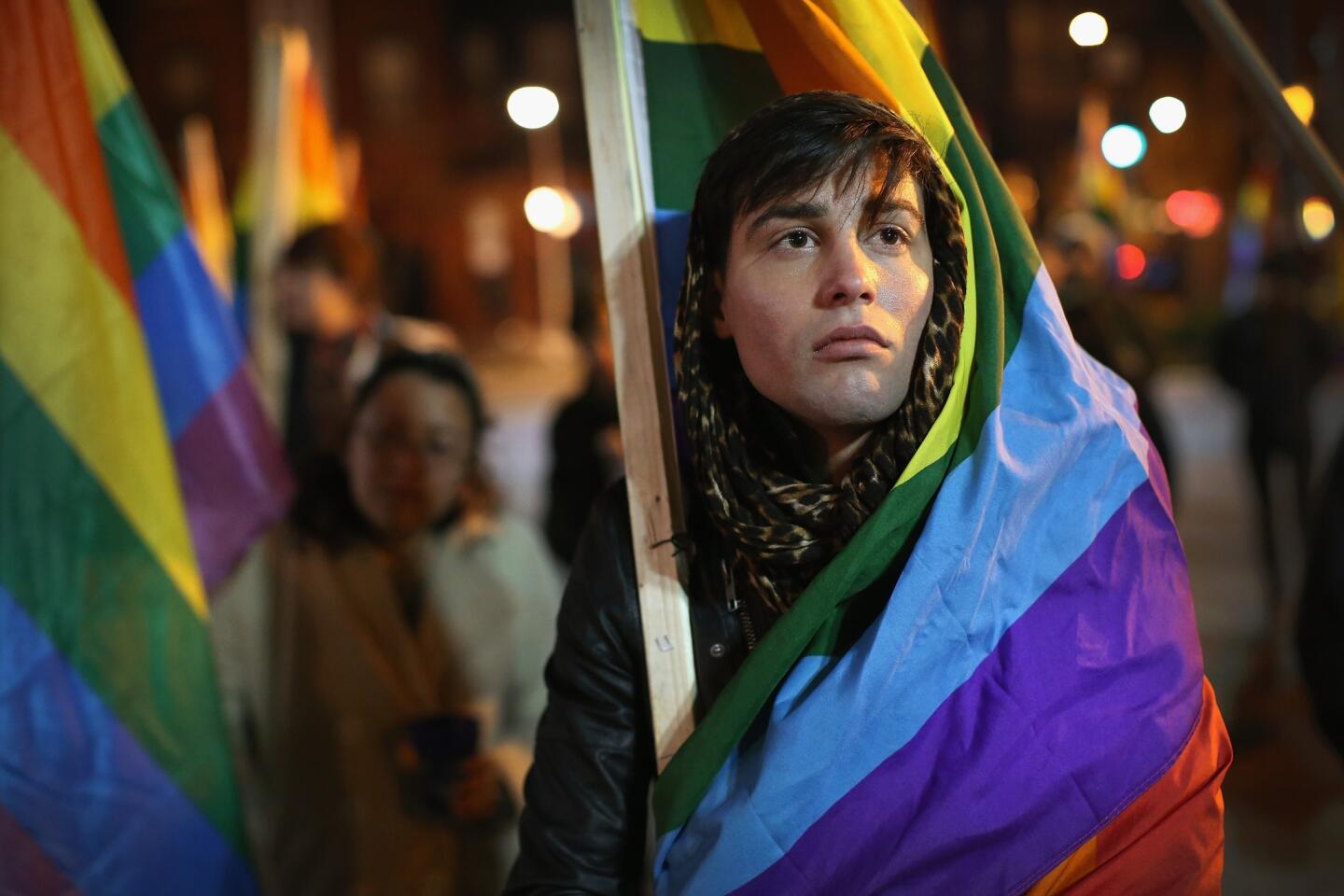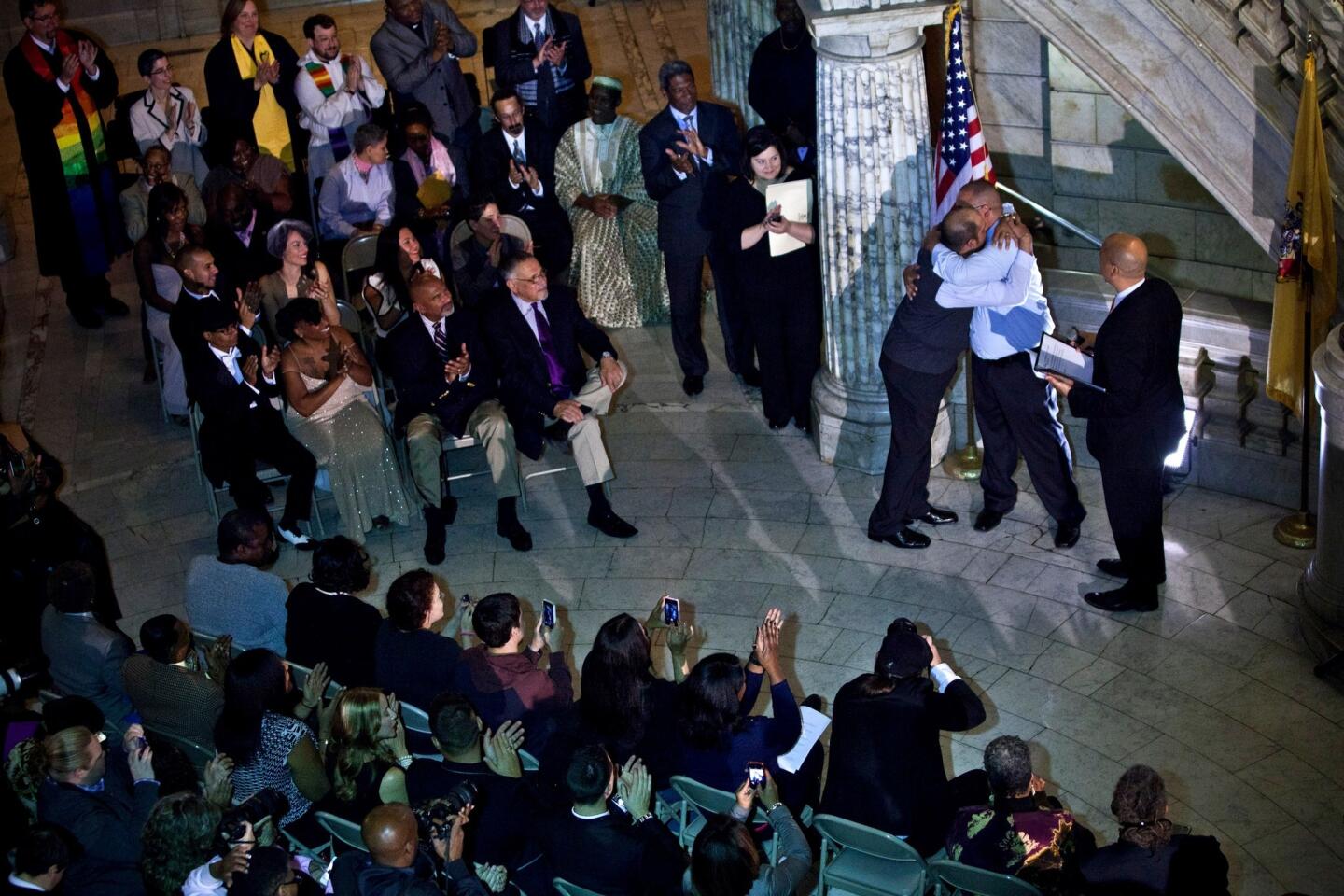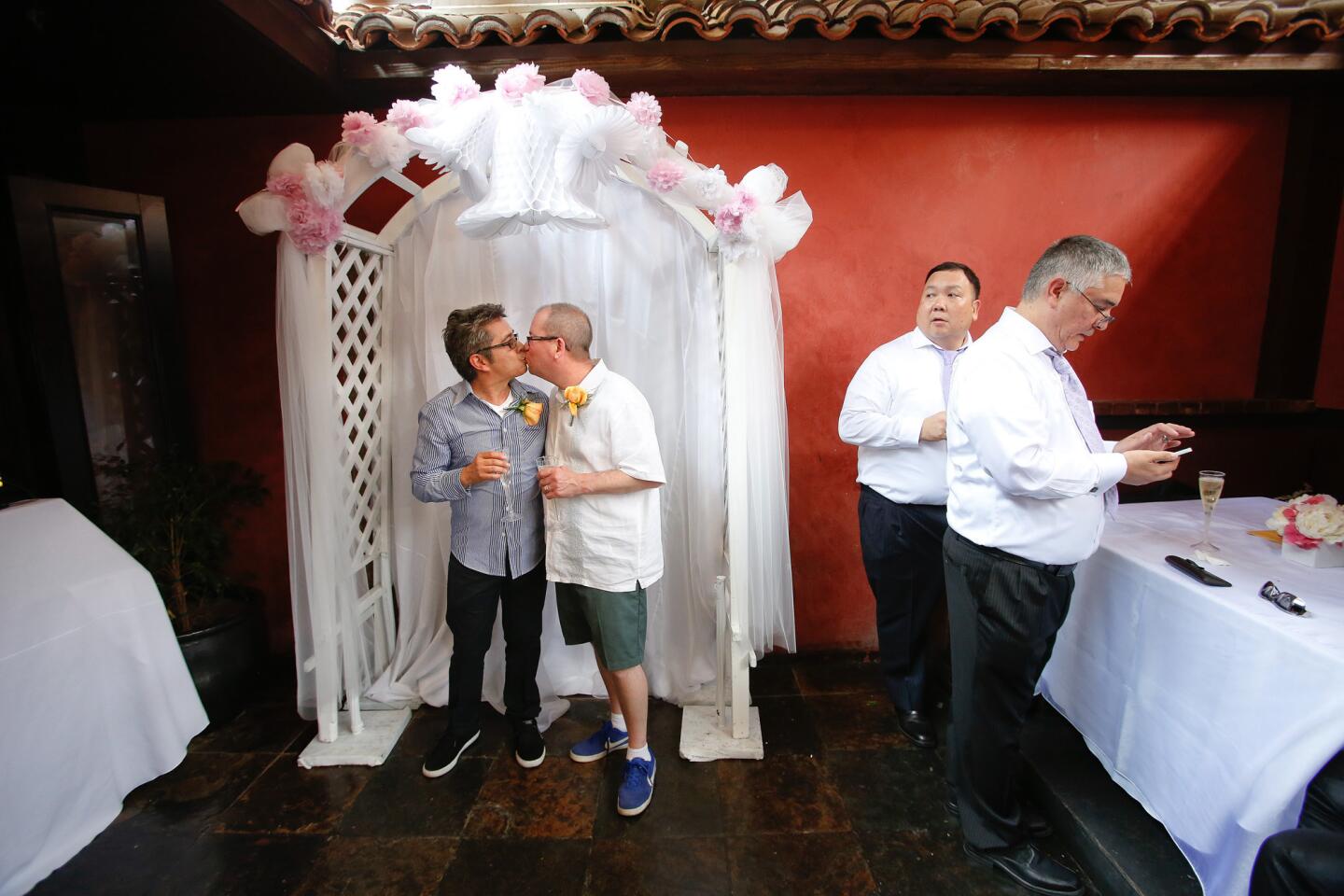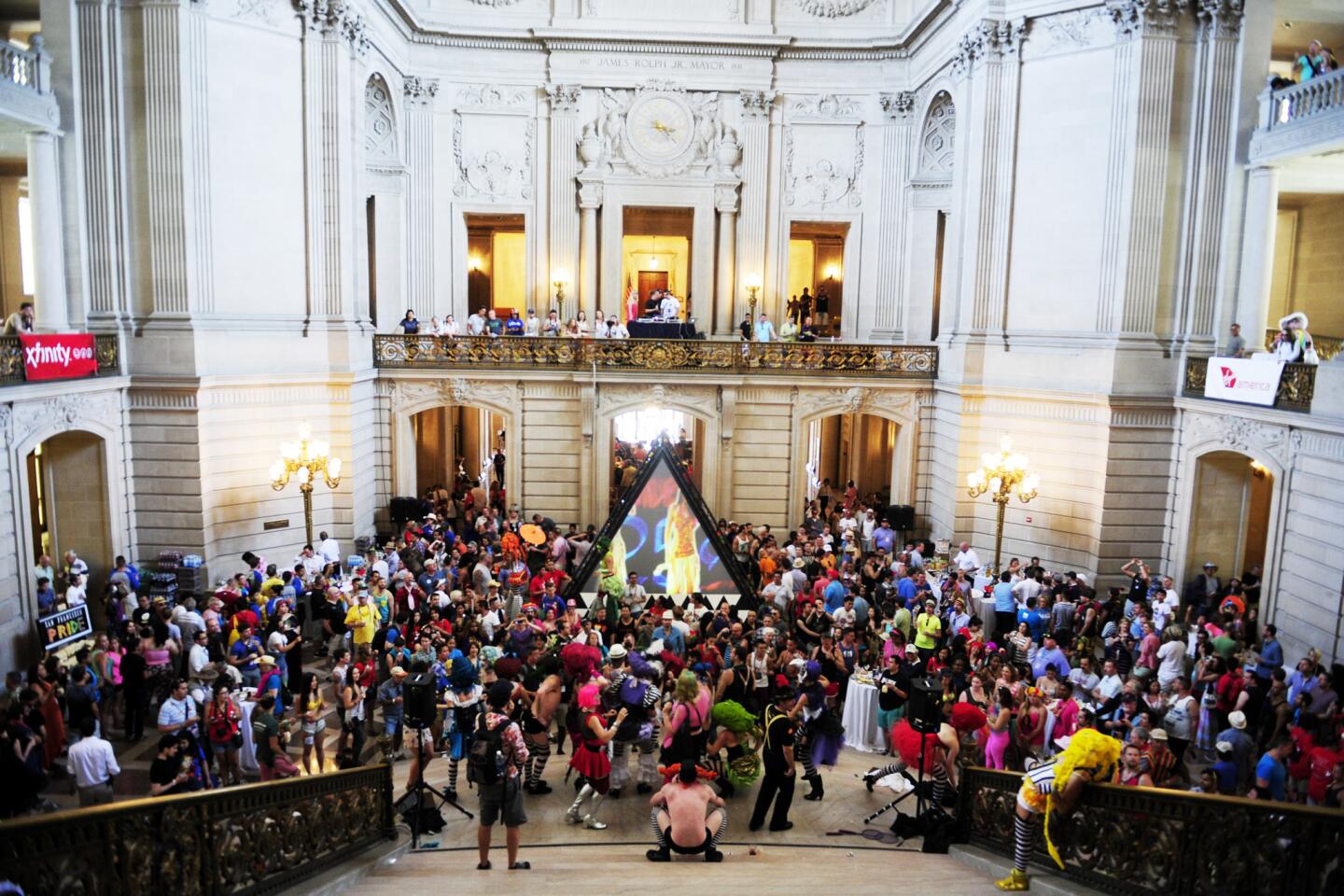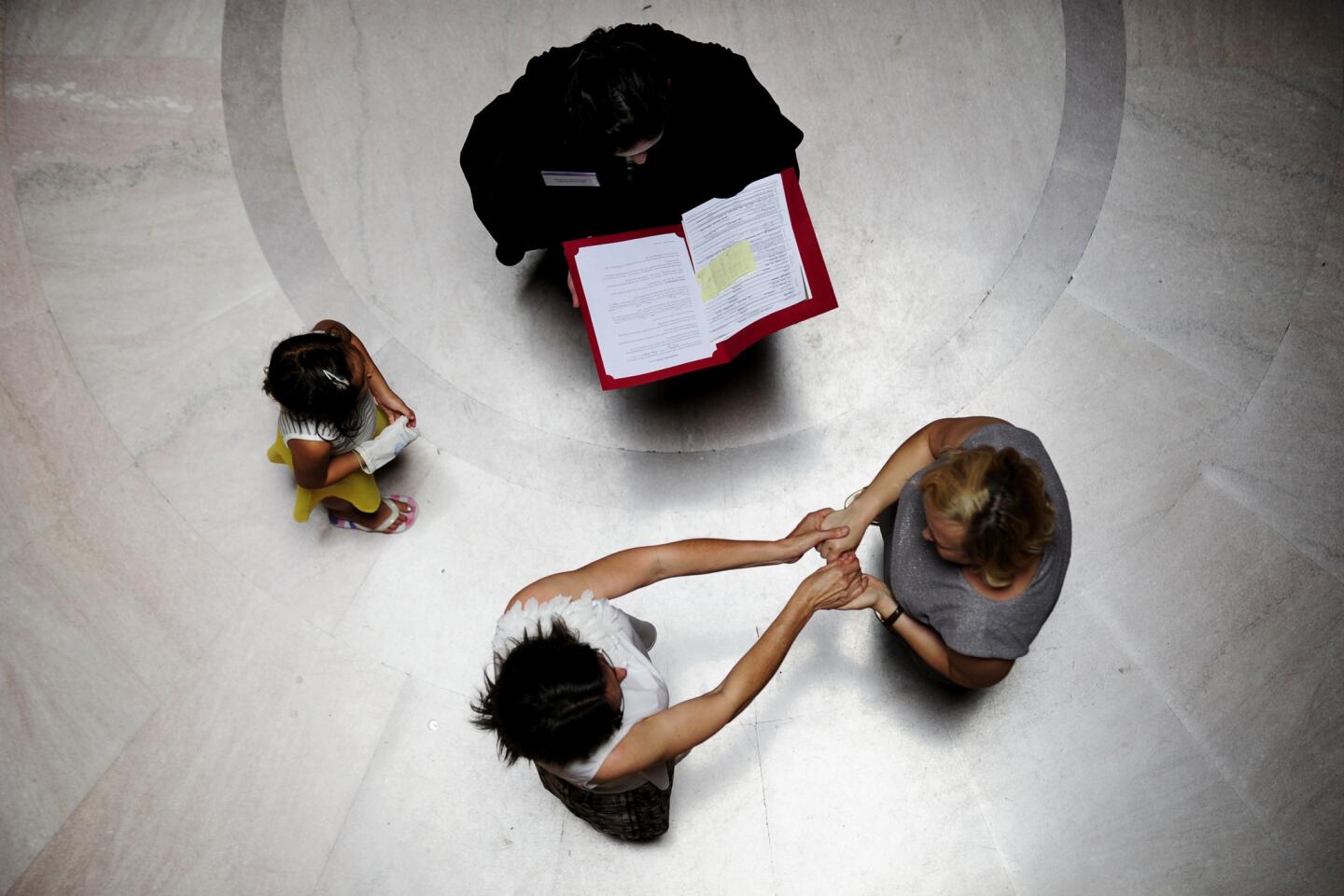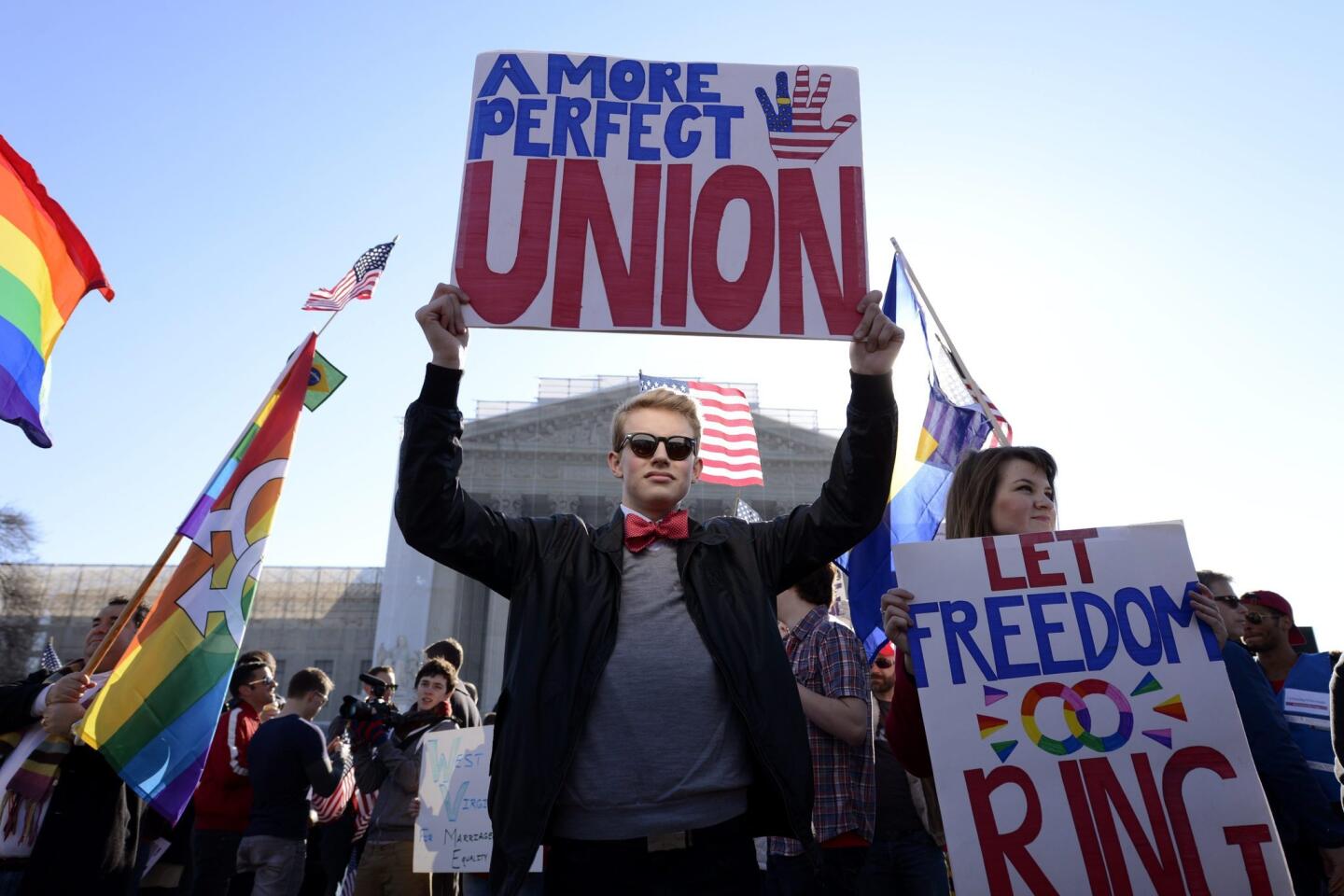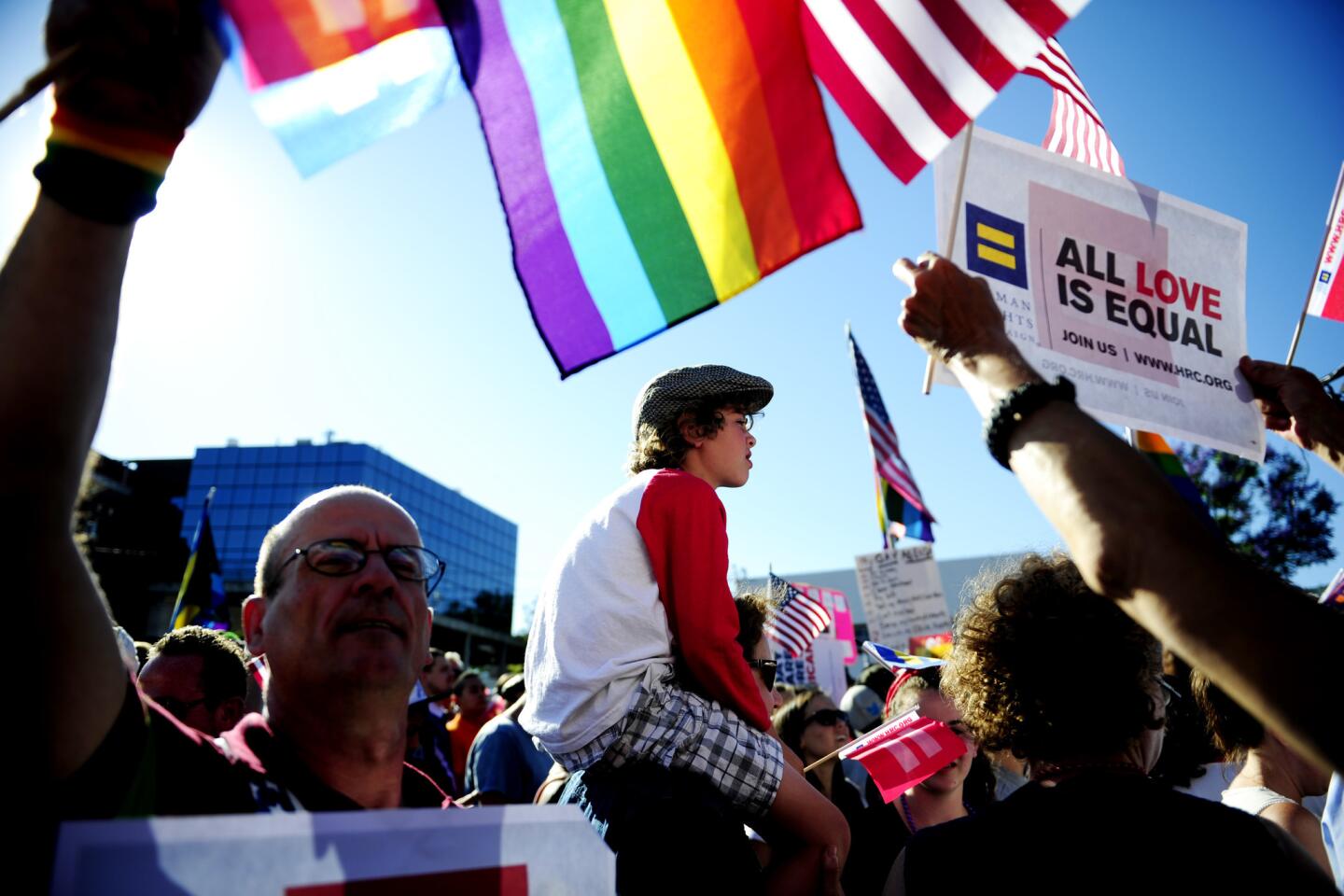Utah appeal may force Supreme Court to take up gay marriage question
WASHINGTON — With an emergency appeal filed Tuesday by Utah, the U.S. Supreme Court is again facing a difficult decision on whether gays and lesbians have a constitutional right to marry — a question the justices carefully dodged last year.
Utah’s attorney general is asking the high court to issue an emergency stay to restore a state law banning same-sex marriage that was struck down a week and a half ago by a U.S. District Court judge. Since then, hundreds of gay and lesbian couples in Utah have rushed to marry.
The Supreme Court has not been asked to rule on the topic since issuing two landmark rulings in June, and its response could have nationwide implications for the future of gay marriage.
In considering Utah’s request for a stay, justices are in effect being asked to make a quick assessment of the state’s claim that its ban on same-sex marriage is likely to be upheld as constitutional in the end.
In its filing, Utah’s state attorney argued there “is a strong likelihood the district judge’s decision will be overturned” and that the state is suffering an “irreparable harm” each day.
“Numerous same-sex marriages are now occurring every day in Utah,” the state argued. “And each one is an affront not only to the interests of the state and its citizens in being able to define marriage through ordinary democratic channels … but also to this court’s unique role as final arbiter of the profoundly important constitutional question.”
If at least five justices side with Utah, it might be a sign that a majority is not yet ready to uphold gay marriage as a constitutional right. If they reject Utah’s request, even in a one-line order, the decision could signal that the court is moving toward making same-sex marriage legal nationwide.
U.S. District Judge Robert J. Shelby, an Obama appointee in Utah, ruled in favor of gay marriage Dec. 20 when he struck down a provision of the state’s constitution defining marriage as a union between a man and a woman. He refused the state’s request to put his decision on hold, clearing the way for hundreds of same-sex couples to rush to get married.
The U.S. 10th Circuit Court of Appeals in Denver, to Utah’s surprise, refused to issue an order putting the judge’s ruling on hold. That prompted the state’s attorney to seek intervention from the Supreme Court.
The appeal was lodged with Justice Sonia Sotomayor, who oversees emergency appeals from the region. She asked for a response by Friday from attorneys for gay couples in Utah who had sued to overturn the state law. She is likely to refer the matter to the full court, which could issue a ruling next week.
An attorney for the gay couples who won before Shelby questioned why the state chose to spend an estimated $2 million to fight the case in the Supreme Court.
“We are disappointed that the state of Utah will spend millions of dollars in taxpayers’ money to attempt to reinstate laws that deny due process and equal protection to all of Utah’s citizens,” said attorney James E. Magleby. “There is no emergency need for a stay,” he added, since hundreds of same-sex couples have already married.
Last year’s Supreme Court rulings on same-sex marriage did not settle the question of whether gay marriage is a constitutional right.
In a 5-4 ruling in late June, the justices struck down part of the federal Defense of Marriage Act and ruled that legally married same-sex couples were entitled to equal benefits under the law. But in a second 5-4 ruling, they relied on procedural grounds to throw out an appeal involving California’s Proposition 8, a decision that had the legal effect of invalidating California’s same-sex marriage ban without establishing a new constitutional right for gays and lesbians nationwide.
The pair of decisions suggested the majority of the court was inclined to advance gay rights, but not mandate same-sex marriage nationwide.
But the decisions triggered a series of pro-gay-marriage rulings in lower courts, including the Utah decision.
More to Read
Sign up for Essential California
The most important California stories and recommendations in your inbox every morning.
You may occasionally receive promotional content from the Los Angeles Times.


